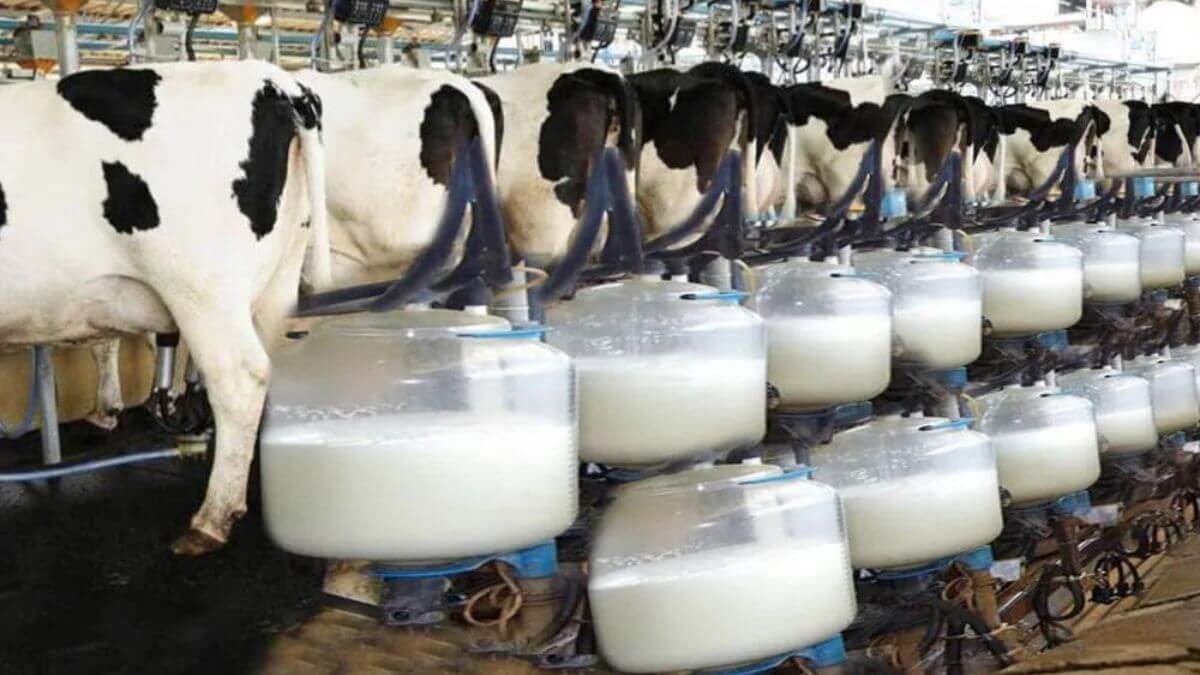
Zimbabwe’s import substitution policy aimed at boosting local dairy production is yielding positive results, as the country witnesses a significant increase in milk production during the first five months of 2023. The Ministry of Lands, Agriculture, Fisheries, Water, and Rural Development has reported a 6% rise in milk production, reaching 38 million litres compared to the 36 million litres produced in 2022. This surge in local milk production has led to a substantial reduction in milk imports, with a decrease of 86% recorded, from 3,418 tonnes in 2022 to 465 tonnes in the current year.
Government’s Drive for Import Substitution: Dr. John Basera, the Permanent Secretary of the Ministry, highlighted the deliberate efforts by the government to achieve 100% import substitution by 2025. These initiatives aim to minimize reliance on milk imports, conserve foreign exchange, and position Zimbabwe favorably in the export market. To support the dairy industry and meet the national demand of 120 million litres, the government plans to continue its assistance.
Promoting Sustainable Dairy Production: To enhance the viability of the dairy sector, the government has implemented various measures. As part of the Presidential Silage Programme, a standard input package has been distributed, comprising climate-smart pasture options and alternative feeds, encouraging on-farm feed formulations. By establishing a pasture-based system, the government aims to reduce the cost of milk production significantly while promoting business sustainability. Dr. Basera emphasized that stock feed constitutes over 60% of the total costs incurred on dairy farms. Therefore, ensuring the availability of affordable feed will be instrumental in increasing milk production and productivity, targeting a rise from 12 litres to 18 litres per cow daily.
Government’s Support and Commitment: Dr. Basera reassured stakeholders that the government remains dedicated to supporting the operations and development of the dairy industry. Rebuilding the sector and achieving self-sufficiency in milk production are key objectives. The government’s continued backing of the industry and its initiatives signifies a commitment to fostering growth, stability, and sustainability within the dairy value chain.
Progress Toward Self-Sufficiency: Earlier in the year, Zimbabwe demonstrated progress toward achieving self-sufficiency in raw milk production. Dr. Basera reported that raw milk production had risen by 14.3%, from 79.6 million litres in 2021 to 91.6 million litres in 2022. Furthermore, the country witnessed a decline of 17% in milk powder imports during the same period, reducing from 8.9 million kilograms to 7.4 million kilograms.
Zimbabwe’s focused efforts on import substitution and local dairy production are yielding positive outcomes. The significant increase in milk production over the first five months of 2023 has allowed the country to reduce its reliance on milk imports substantially. By continuing to support the dairy industry and implementing initiatives such as the Presidential Silage Programme, Zimbabwe aims to meet its national milk demand, reduce production costs, and increase productivity. These measures position the country on a path towards self-sufficiency, leading to foreign exchange savings and potential entry into the export market.
Stay updated with the latest farming tips and agriculture industry news from Africa by subscribing to our newsletter. Don’t miss out on valuable insights and updates. Follow us on Twitter, LinkedIn, and Facebook to join our farming community and stay connected with us.




















Leave a Reply